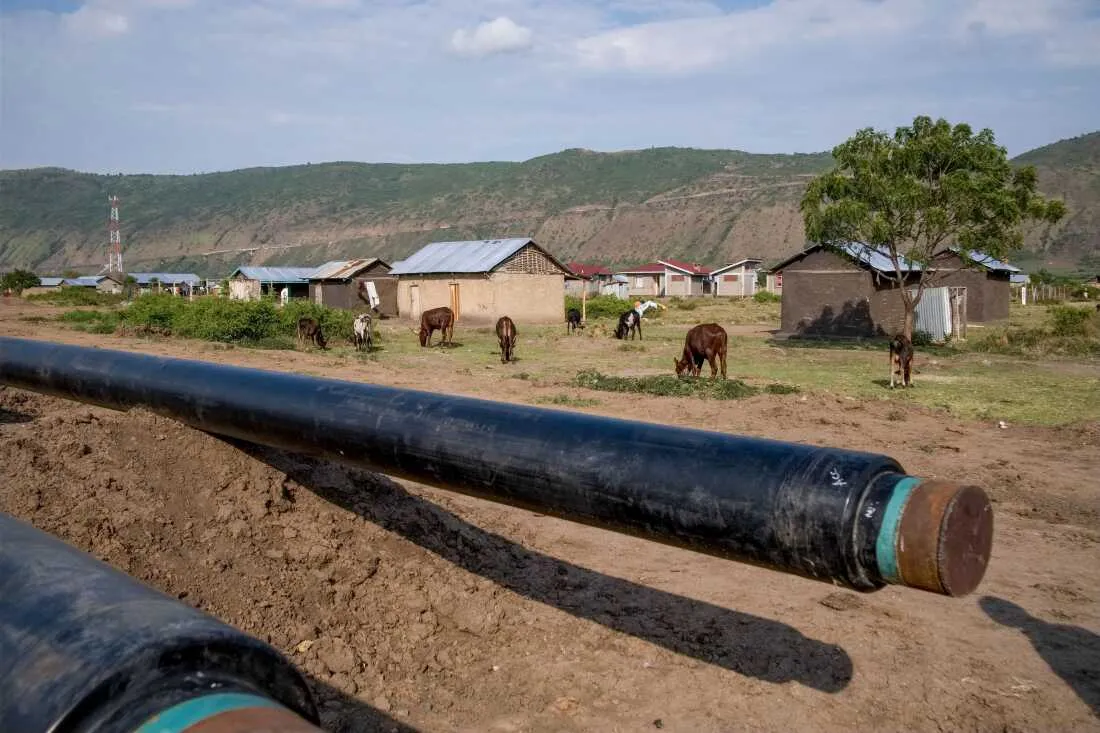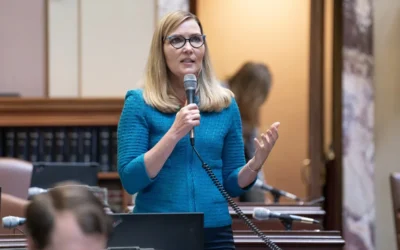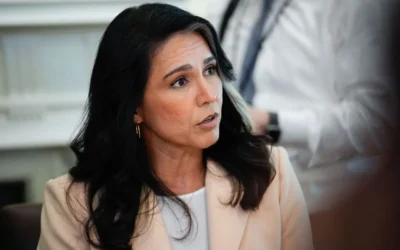The Hidden Cost of Oil: Communities Fractured by a Pipeline Project in Tanzania
As Uganda accelerates its ambitious oil pipeline project that stretches into the heart of Tanzania, communities stand at a crossroads. The East African Crude Oil Pipeline (EACOP), expected to pump millions of barrels of oil from Uganda to the Tanzanian port of Tanga, promises economic development and job creation. However, beneath its glossy surface lies a darker narrative—one marked by social upheaval, environmental concerns, and fractured communities.
The Pipeline Project Landscape
Launched amid much fanfare, the EACOP project is envisaged as a vital artery for Uganda’s budding oil industry. Connecting the Albertine Graben oil fields to international markets, the pipeline spans over 1,400 kilometers. The initiative is backed by major oil companies, including TotalEnergies and China National Offshore Oil Corporation (CNOOC). EACOP plans to transport around 216,000 barrels of crude oil daily, a move perceived by the Ugandan government as key to its economic transformation.
However, local stakeholders express skepticism, citing the potential for cultural disintegration and environmental degradation. Communities in affected regions have raised alarms about land grabs, insufficient compensation, and lack of consultation. This project, while touted as a boon for Uganda’s economy, has profound implications for the communities residing along its route.
Displacement and Land Grabs
The issue of land is central to the community’s plight. Many families are facing displacement as construction progresses. The government has earmarked large tracts of land for the pipeline, prioritizing infrastructural development over the rights of local residents. Compounding the problem is the often inadequate compensation offered to these families, pushing them further into financial disarray.
According to various reports, thousands of families will be affected, losing not just their homes but their farms, which serve as a livelihood source. Traditional land willingly passed down generations is now under threat, resulting in a loss of cultural heritage and disconnection from ancestral lands. One resident, who wishes to remain anonymous for fear of reprisal, described the pain of losing family land: “This place holds our history. Our ancestors are buried here. It feels like we are being erased.”
Environmental Concerns
The environmental implications of the EACOP are dire, with warnings from activists and environmentalists echoing through the international community. The pipeline passes through delicate ecosystems, including critical habitats, wilderness areas, and biodiversity hotspots. Experts have raised alarms over the risk of oil spills, deforestation, and threats to local wildlife, such as elephants and rare bird species.
Additionally, the project can potentially lead to increased carbon emissions, contradicting global climate change goals. Environmental groups argue that investing in fossil fuels undermines efforts to transition towards sustainable energy and climate resilience. “This pipeline threatens more than just the environment; it threatens the survival of these communities,” warns a local environmental activist.
Fractured Communities
The social fabric of the affected communities is increasingly frayed. Ties that once bound neighbors, families, and tribes are being torn apart as anger and resentment take root. Divisions have emerged over compensation disparities and differing levels of engagement from authorities. Those who accept compensation often find themselves ostracized by their peers, leading to social discontent.
Furthermore, the influx of workers during construction periods can exacerbate issues. Reports of increased crime, gender-based violence, and social instability have arisen in places where similar projects have taken place. People are concerned about the sustainability of their communities; some are calling for a radical rethink on how such large-scale projects are managed to avoid these upheavals.
Voices of Concern
The sentiments of those most affected often remain unheard in national dialogues dominated by reassuring economic rhetoric. Families affected by the project feel their struggles are minimized amid promises of profits and growth. To bring this perspective to the forefront, a grassroots coalition has started organizing informational sessions to ensure that local voices are amplified. Elders, women, and youth leaders are coming together, demanding greater accountability from their government and the companies involved.
In one of these sessions, a local leader stated: “We want accountability and transparency in how decisions are made. Our future is at stake.” These gatherings not only raise awareness but foster a sense of solidarity, allowing community members to share resources, strategies, and encouragement.
The International Community’s Role
As the EACOP project progresses, the need for international scrutiny becomes even more crucial. Multinational oil companies, while calculating their returns on investment, need to consider the ethical implications of their operations. NGOs and watchdogs warn that this situation raises significant social responsibility concerns—especially regarding human rights and environmental degradation. Investment opportunities must come with a moral imperative for sustainable practices that do not exacerbate tensions.
The international community can play a role by holding companies accountable through advocacy, support for the local populace, and pressure on both the Ugandan and Tanzanian governments to uphold their commitments to land rights and environmental justice. Initiatives like social impact assessments should become mandatory rather than optional, ensuring the voices of those affected are included from the start.
A Pivotal Moment for Uganda
As the projected timeline for the project indicates a 2026 launch, communities are braced for an ongoing battle to protect their rights, land, and the environments they cherish. While oil may hold the promise of financial wealth, the hidden costs affecting people and ecosystems could prove irreparable if not addressed promptly and thoroughly.
In this pivotal moment, the world watches closely—will Uganda prioritize its long-term sustainability over short-term gains? Will it stand firm in protecting its communities while paving the way for economic development? The answers to these critical questions lie ahead. For now, the struggle continues for those on the frontlines of the East African pipeline project, demanding the recognition of their rights and the preservation of their livelihoods.
Conclusion
The hidden costs attached to oil extraction and transportation are beginning to unfold in Uganda and Tanzania. As communities face the growing threat of displacement and cultural erosion, activists rally for equity and justice. The outcome remains uncertain, but what is clear is a pressing need for a balanced approach that integrates community voices and ecological preservation into economic strategies.
For people living along the proposed pipeline route, the future may depend not only on wealth generated from oil but also on their ability to unite and advocate for their rights. In today’s increasingly interconnected world, the lessons learned here could well set a precedent for how future resource extraction endeavors are approached—not only in East Africa but globally.







